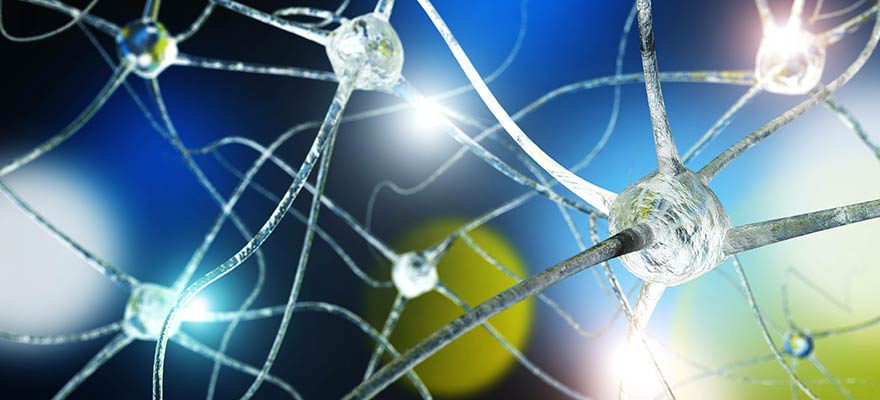Evidence base on Transcranial Pulse Stimulation expands
New study shows TPS effective for both Alzheimer’s dementia and depression
That Transcranial Pulse Stimulation is an effective therapeutic modality for treating the symptomatology of Alzheimer’s dementia, other forms of dementia, and also associated depression has been shown by clinical studies in the past. Equally significant is that in our practices, together with patients and relatives, we experience on a daily basis the support that TPS can provide in living with these diseases.
Now the study situation is also getting better and better. Research is being conducted worldwide on various aspects of Transcranial Pulse Stimulation – recently, by the way, also in the USA, where TPS has now also been approved for studies.
In Germany, the first scientific publication of 2023 – with many more papers to follow shortly – comes from my colleague Prof. Dr. med. Dr. rer. nat. Dipl.-Psych. Ulrich Sprick. He is the head physician of the outpatient clinics and day clinics of the Alexius/Josef Klinik Neuss and a professor specializing in brain research at the Medical Faculty of the Heinrich Heine University in Düsseldorf. Incidentally, his observational study was financed from the Alexius/Josef Klinik’s own funds.
The new data also show: TPS supports cognitive executive functions and alleviates depression
The team led by Prof. Sprick and co-author Martin Köhne, MD, medical director of the Alexius/Josef Clinic, included 21 proven Alzheimer’s dementia patients:aged between 59 and 86 years in the study. Patients with brain tumors (including benign tumors), hemophilia, blood coagulation disorders, Marcumar therapy or corticosteroid treatment up to six weeks before the first TPS stimulation had to be excluded. The pharmacological medication as regular state-of-the-art treatment of the patients was maintained.
In a so-called pre-post study design (i.e. before-after examinations) the executive functions of the subjects were examined. This refers to the mental processes that specifically control behavior, attention and emotions. The Stroop test (also called color-word interference test), a procedure for testing selective attention, was used. This test deliberately creates conflicts between controlled and automated processing in the brain.
Many Alzheimer’s dementia patients also suffer from depressive moods or depression. As has been shown in other studies on TPS, neurological shock wave treatment can also have a positive effect here. The severity of depressive symptoms was measured using the so-called Becks Depression Inventory (BDI), a validated psychological test procedure.
Both tests were administered before the start of each of the six TPS treatments and two weeks after receipt of the last TPS therapy session.
Significant results were shown for both the effect of TPS on executive functions and depression symptom severity-and the researchers found more.
TPS application study: implementation and results in detail
Transcranial Pulse Stimulation is performed with the NEUROLITH® shock wave system. Focused shock waves (3 μs duration, 4 Hz, 0.25 mJ/mm2) were applied to the patient:s. There were a total of 6,000 pulses per session: 1,000 pulses to the left and right dorsolateral frontal cortex, 1,000 pulses to each parietal lobe, and 1,000 pulses to each temporal lobe. Thus, 3,000 pulses were applied to each hemisphere during each session.
The results of the Stroop test (comparison pre vs. post) showed that executive functions were significantly improved by TPS stimulation (p < 0.05). Statistical analysis using the Wilcoxon test showed a significant difference (p < 0.05) pre vs. post. In the Stroop test, reaction times decreased from 246 seconds to 166 seconds (mean values).
Two patients showed an outstanding result in each case: they reduced their reaction time from 575 to 201 seconds and from 602 to 276 seconds. The authors also noted a significant reduction in BDI sum scores (from 16.3 to 12.1 points), indicating that depressive symptoms were alleviated.
As already known and verified from other studies and investigations as well as the applications of TPS in clinical and practical everyday life, side effects occurred only in the negligible range and to a small extent on the basis of headache and fatigue.
Specific mechanisms of action of TPS: Evidence for transient opening of the blood-brain barrier is accumulating.
Several factors are currently under discussion regarding the specific mechanisms of action of TPS. Mechanical effects of TPS shock waves on cell membranes affect ion channels and induce pore formation in both neurons and glial cells. Also, changes in various neurotransmitter levels have been observed after TPS applications, and more.
In addition, there is now a growing hypothesis that TPS may also be able to induce a temporary opening of the blood-brain barrier. This is the biological boundary between the blood and central nervous systems. Only certain substances can pass into the brain through the cells that lie on the outside of the vessel wall. This naturally protects the brain from harmful substances, pathogens and toxins.
However, this also means that most drugs are also identified as foreign substances by the biological system and thus cannot pass through the border of the blood-brain barrier, ergo cannot exert their effect where it is medically necessarily desired. TPS could therefore act in tandem with the administration of medications to better deliver the active ingredients to the brain area. Admittedly, this hypothesis needs to be explored in further studies and research, the authors said.
Conclusion: TPS as a therapeutic module to reduce disease symptoms and improve quality of life
According to the authors, data analysis shows that Alzheimer’s disease patients:enrolled in the study benefited from Transcranial Pulse Stimulation – as an adjunct therapy to state-of-the-art drug treatment. The new data also confirm the results of previous TPS studies. In addition to its use in Alzheimer’s Dementia®, the authors believe that TPS will be a promising, perhaps even revolutionary, therapeutic option in the future for other neurodegenerative diseases, leading not only to an improvement in disease symptoms but also to an overall improvement in quality of life.
Source:
Sprick U, Köhne M. (2022). Brain Stimulation by noninvasive Transcranial Pulse Stimulation (TPS) improves cognitive Deficits and Mood in Alzheimer’s Disease. In: Proceedings of the International Conference on Electrical, Computer, Communications and Mechatronics Engineering (ICECCME), 16-18 November 2022, Maldives.


